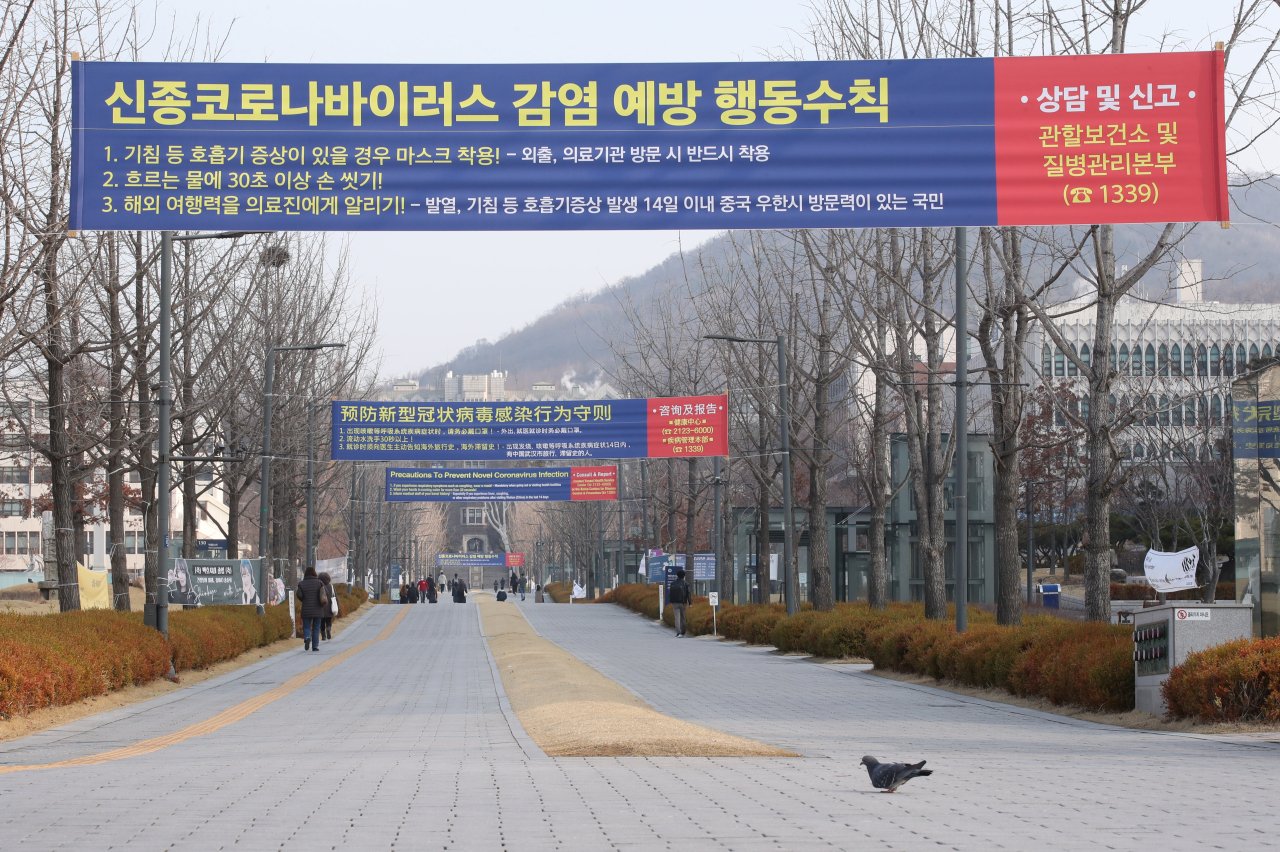Gripped by the rapid spike in coronavirus cases here, international exchange programs are being cut short and overseas students are returning home.
Breanna Morgan, a 19-year-old student at the University of Alabama, arrived in Seoul just five days ago when she found out she had to leave. Last week, her US-based program provider, International Studies Abroad, notified her and some 70 Americans that their semester abroad program at Korea University was suspended due to concerns about the COVID-19 outbreak.
“I was very upset to hear that I have to go back home just after getting settled here. I had just unpacked the day before after purchasing all of the essentials that I would need,” Morgan told The Korea Herald upon returning home. “But I think at this time, it is better to think about our health and safety, over not being able to come (back to the US) later on.”
“I plan to go back to Korea University in the fall, if the virus outbreak is curtailed by then. But if not, I will keep waiting until it is.”
“I am extremely disappointed,” said Andrea Snyder, a 22-year-old American who is returning home this week. “I feel as though the danger portrayed by media outlets in the West on Korea, specifically, is (nowhere) near the danger that I feel being in the country. I would prefer to stay back here.”
Snyder, an American University student who is studying Korean language at Sogang Univerisity, received a notice from her school in Washington last week that it is suspending all programs in Korea indefinitely. The decision was based on the US Centers for Disease Control and Prevention’s advisory, which raised the warning level for Korea to its highest, urging Americans to avoid nonessential travel here, as well as major American carriers reducing flights between the US and Korea, she added.
Snyder came to Korea last August and was planning to stay for another semester. She also received a separate notice from her scholarship provider -- Boren Scholars, which is funded by the US Defense Department -- mandating all recipients to return, on the heightened travel advisory level set by the State Department.
The US State Department on Saturday raised its travel advisory for Daegu to the highest level on the country’s four-notch system, urging Americans not to travel to the city hit hardest by the coronavirus. For the rest of Korea, the advisory remained at Level 3, which means “reconsider travel.”
On Sunday, US President Donald Trump announced the government is requiring medical screening procedures for travelers from Korea and Italy before boarding and upon arrival.
While the US hasn’t imposed an outright ban on Korea, likeas it did for China, it has been upping restrictions lately. The government is scrambling to calm Americans after the country reported two deaths this weekend, raising the possibility here that it could impose stricter controls on arrivals from Korea.
Korea is battling the largest outbreak of COVID-19 outside of mainland China, where the virus originated last December. The country has reported 4,335 cases as of Monday and 26 deaths.
In the past few days, major US schools have announced they are suspending study abroad programs in Korea and some are taking similar steps for Italy, another country experiencing a significant outbreak. Cornell University, USC, UC San Diego, the University of Wisconsin, the University of Georgia and the University of Colorado Boulder are among many that have shuttered their programs here.
Meanwhile, other institutions, including Harvard University and Stanford University, are discouraging all travel by students and faculty to and from Korea.
Universities in Singapore -- including the National University of Singapore, Nanyang Technological University and Singapore Management University -- have also suspended all student exchange programs with Korea.
An increasing number of Chinese students enrolled in universities here are also deciding to cancel their trips ahead of the new school year, which has been delayed by a few weeks already as the number of COVID-19 cases shows no signs of abating.
According to Seoul’s Foreign Ministry, in February, around 18,000 Chinese students arrived in Korea, down 66 percent from the previous year.
There are around 70,000 Chinese students studying in Korea, and 33,000 are said to still be in China, according to Korea’s Education Ministry.
Meanwhile, the education authorities in Seoul and Beijing have agreed to advise their students not to return to school.
With a growing number of countries closing their borders to travelers from Korea, more students are expected to return home, or have decided not to come back. As of Monday, 81 countries and regions are imposing entry restrictions and special quarantine measures on those traveling from Korea, including 36 that have barred entry.
By Ahn Sung-mi (
sahn@heraldcorp.com)








